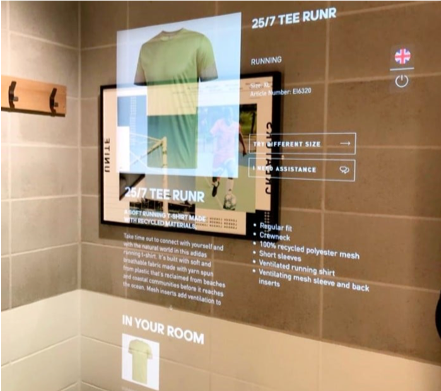Concept stores are becoming more and more popular in recent years. Why? Because they offer more than just products, it’s a lifestyle.
Consumers can find and purchase products online with only a few clicks so physicals stores have to offer something more to stay relevant. However, while online stores provide price competitive products and convenience, they cannot satisfy the pent-up demand consumers have for human interaction and real-life experiences during a pandemic. Concept stores are stepping in and reinventing shopping experiences, which is why they are being hailed as the saviours of brick-and-mortar stores.
Arguably, the most important element of a concept store is interaction – interaction with people and the brand. They’re all about experiences and discovery, therefore, there is a huge focus on interaction rather than conversion.
Concept stores’ mission is to build communities around their brand and lifestyle they promote. They are able to sell many products and services that are in line with the brand.
A cosmetics (concept) store, for example, may offer tutorials on how to apply makeup. It could even branch out into skincare products since skincare has become more popular during the pandemic. To create a lifestyle, the brand should focus on a niche or an overreaching theme such as vegan, cruelty free, or K-beauty products, and educate consumers on that niche through talks and seminars.
By engaging its target demographics with experiences, the hypothetical cosmetics store will create a strong following of loyal consumers who will be more inclined to buy the products and even look forward to new product offerings. Furthermore, this form of soft selling is also more fun and casual for consumers which helps create positive associations with the brand.
The pandemic has accelerated the need for experiential retail; and extra services such as cafes, seminars, and clever product demonstrations have now become a necessity rather than a ‘nice to have’. Brands have to create spaces in which consumers want to spend time and interact with people and the products.
So, how do you do you do that?
Well, Unibox says, concept stores “take the point of view of a magazine, changes like a gallery, and sells things like a store.” So, Unibox’s advice is to first understand your consumers’ needs; and second, to take inspiration from the hospitality sector, galleries, and magazines and curate branded experiences. Cafes are common in department stores but would your target demographics prefer a juice bar instead of a café; are they plant loving millennials or technology loving Gen-Zers? There are high costs associated with concept stores so retailers must make sure they target consumers effectively.
It can be argued that concept stores can be created without spending a huge amount. Colours, materials, sounds, lighting, touch etc can achieve the same impact as a store which invests a huge amount on technology for example. What’s most important is to successfully communicate the brand story as 15% of consumers will buy the product right away if they love the story, while 55% become more likely buy in the future, and 44% will share the story and advocate the brand.
Retailers can take advantage of the high demand for experiences at this time. Offering enriched experiences will lead to retailers attracting shoppers, improving time spent in store, increasing chances of selling, and creating long term advocates of the brand.
Therefore, a space for consumers to share experiences with friends and family as well as engage with the brand is the key to success for concept stores. What Rachel Shechtman, founder of Story, said could not be more true at this moment, “If time is the ultimate luxury and people want a higher return on investment of their time, you need to give them a reason to be in a physical space.”
Examples:
Adidas’ Oxford Street flagship is a concept store that uses technology very well to enhance customer experience. Featuring interactive changing room mirrors and printing machines for customising products in store, this store is one of “the most digital store to date”.
Technology showcases the power of a brand and makes a statement of it’s standing in the market.


John Lewis Partnership’s Leckford Estate is experimenting with extra services: a new Waitrose Cookery School, personal styling packages, specialist gardening talks and home consultations are among the new services.
Bonds is the mother of all concept stores with its shop, café, events space etc. It hosts many workshops including candle making and life drawing classes. The theme of Bonds is local artisans through which it connects with likeminded consumers

